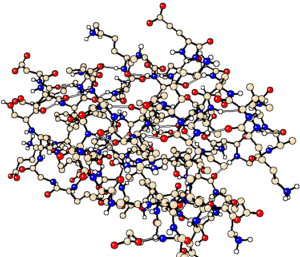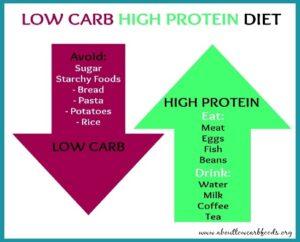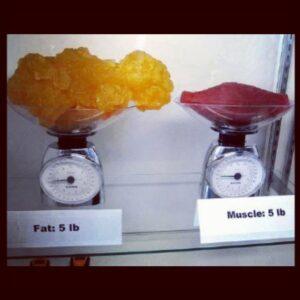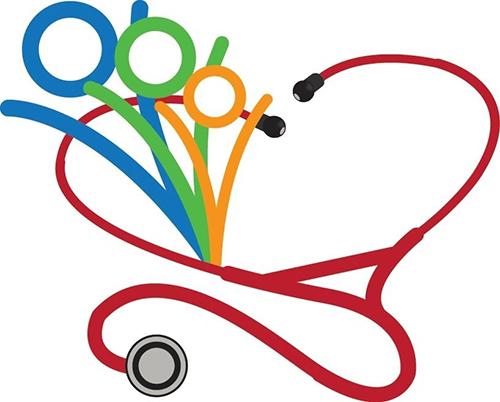 Proteins – are large compounds consisting of complex formations of amino acids. Due to their size, the body takes a long time to breakdown into particles small enough to be absorbed. Therefore, proteins are a slower and longer-lasting source of energy than carbohydrates.
Proteins – are large compounds consisting of complex formations of amino acids. Due to their size, the body takes a long time to breakdown into particles small enough to be absorbed. Therefore, proteins are a slower and longer-lasting source of energy than carbohydrates.
There are 20 amino acids that proteins are composed of. The human body is capable of synthesizing 11 of these amino acids on its own, but 9 amino acids cannot be synthesized by the body and must be consumed from another source. Those 9 amino acids are the “essential amino acids” and must be included in the diet.
Proteins are necessary to aid the body for cellular, tissue, and organ maintenance, repair, growth, reproduction, and enzyme production. Protein is not usually used for metabolic energy especially when there is ample carbohydrate and fat sources available. However, when the body is low on caloric supply of carbohydrates and fats, it will resort to breaking proteins down to make glucose.
 Making glucose from proteins is a process called gluconeogenesis. Since Proteins are organic compounds, meaning they are carbon based and are produced by living organisms, synthesizing glucose involves breaking down the complex bonds in protein (COOH carboxyl group) and refining the Carbons, Hydrogens, and Oxygen molecules into C6H12O6 (glucose). However, proteins also contain an amine group (NH2), from the amino acids, which is discarded during the synthesis of glucose from protein. The nitrogen compounds (NH2), form ammonia, urea, uric acid, and creatinine. These are excreted in the urine and are indicators in lab results on liver and kidney functions.
Making glucose from proteins is a process called gluconeogenesis. Since Proteins are organic compounds, meaning they are carbon based and are produced by living organisms, synthesizing glucose involves breaking down the complex bonds in protein (COOH carboxyl group) and refining the Carbons, Hydrogens, and Oxygen molecules into C6H12O6 (glucose). However, proteins also contain an amine group (NH2), from the amino acids, which is discarded during the synthesis of glucose from protein. The nitrogen compounds (NH2), form ammonia, urea, uric acid, and creatinine. These are excreted in the urine and are indicators in lab results on liver and kidney functions.
 Of the three basic sources of nutrients you consume (carbohydrates, fats, and proteins), the proteins are the most important for losing body fat.
Of the three basic sources of nutrients you consume (carbohydrates, fats, and proteins), the proteins are the most important for losing body fat.
First, proteins keep you feeling full, which reduces overeating and needless snacking (slows gastric emptying).
Second, proteins boost your caloric expenditure throughout the day because proteins take more energy to break down than carbohydrates or fats (20-30% of the total calories in protein goes directly into digesting it).
Finally, when accompanied with weight training, a high-protein diet prevents muscle loss that might otherwise happen when you suddenly cut calories from your diet.

